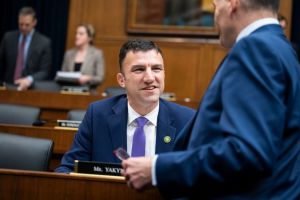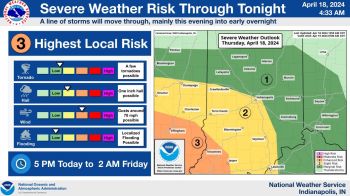
Source: Tom Williams / Getty
WASHINGTON — During the pandemic, many people filed for unemployment if they ended up either losing their job or were told to stay home due to pandemic shutdowns. For many, this was an option to get by, but for more nefarious characters it was another opportunity for fraud.
Three years removed from the height of the pandemic, lawmakers are concerned that unemployment fraud has been getting further and further out of hand, especially in cases where people are knowingly being overpaid unemployment relief money.
“The Department of Labor’s inspector general pegs pandemic-era unemployment insurance fraud at $191 billion, though other experts say it could run as high as $400 billion. These are staggering numbers,” said Rep. Rudy Yakym (R-IN-2nd).
Yakym spoke in favor of HR 1163 on Friday which is a bill he is co-sponsoring. The bill provides incentives for states to investigate claims of unemployment fraud with more rigor in order to catch those trying to cheat the government out of taxpayer money.
Part of the bill includes provisions that would allow states to keep up to 25-percent of recovered overpayments.
“This fraud has enriched criminals, it harmed innocent Americans who faced processing delays, stolen benefits, and stolen identities,” Yakym added. “These were not victimless crimes.”
Opponents of the bill, including many Democrats, also include the non-partisan Center on Budget and Policy Priorities. The organization says HR 1163 would actually do more harm than good in tracking down people who are committing unemployment fraud.
The CBPP is concerned the bill will further scrutinize Americans who have been unknowingly receiving overpayments but have not been engaging in fraud. They also don’t like that it allows states to hire private contractors to investigate claims of fraud instead of using public employees.
The bill passed the House on a mostly party-line vote. Only 10 Democrats joined every Republican in the House in voting to pass the measure. The partisan passage points to an uncertain future for the bill in the U.S. Senate.













